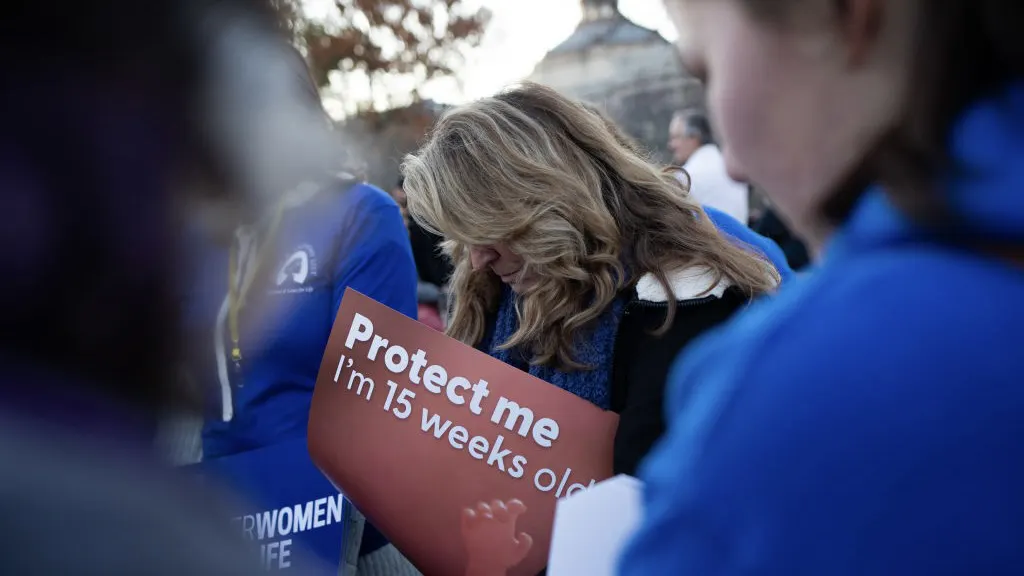In a round of questioning with Julie Rikelman, the senior director of the Center for Reproductive Rights, Justice Samuel Alito raised questions about the topic of viability.
As reported by The New York Times:
Justice Alito is asking a series of questions about why viability should be the line. He notes a woman who doesn’t want to have a baby has that same interest before and after viability. From the perspective of fetal life, he notes, viability is dependent on technology and medical practices, which changes over time.
Justice Alito asked Rikelman, “I’m sure you know the arguments about the viability line as well as I do, probably better than I do. What would you say in defense of that line?
“What would you say to the argument that has been made many times by people who are pro-choice and pro-life that the line really doesn’t make any sense…?”
He added, “If a woman wants to be free of the burdens of pregnancy, that interest does not disappear the moment the viability line is crossed, isn’t that right?”
Rikelman responded no but said the state views viability as arbitrary because it discounts the woman’s interests.
Alito interjected, noting, “Upon reaching the point of viability does not the woman have the same interest that she had before viability in being free of this pregnancy that she no longer wants to continue?”
Rikelman said viability is a principled line, and Alito said he was trying to see whether it was.
“Agree with me at least on that point — that a woman still has the same interest in terminating her pregnancy after the viability line has been crossed?” Alito said.
“Yes, your honor,” she said. “But the court balanced the interests in — ”
Alito stated, “Then, look at this on the other side, the fetus has an interest in having a life and that doesn’t change, does it, from the point before viability to the point after viability?”
Rikelman said that in some people’s view it doesn’t, and brought up how the court said there were philosophical differences that couldn’t be resolved.
Alito went on to ask what the philosophical, secular argument is for saying viability is the appropriate line.
As reported by The Daily Wire, today, the Supreme Court hears arguments on a case out of Mississippi that could dramatically change the landscape of abortion in the country.
The case, Dobbs v. Jackson Women’s Health Organization, concerns a 2018 law in Mississippi that bans most abortions after 15 weeks of pregnancy. As the law stands now, Roe v. Wade and the decisions that came after it hold that states have to allow a woman to be able to get an abortion up to the point of viability, or when the baby can survive on its own outside the womb. Most states hold this mark at around 20 to 24 weeks, so the Mississippi law is a direct violation.
Originally, Mississippi said in its petition that the questions presented to the Court do not require them to overturn Roe or Planned Parenthood v. Casey. In its brief in July, however, the state wrote, “Roe and Casey are egregiously wrong” and said the court should overrule those decisions.
Many are asking why this case, in particular, is so important and being watched so closely. It has to do with the Supreme Court and the question they plan to consider.
When the Supreme Court agreed to hear the Mississippi case, it said it would consider the question of “Whether all pre-viability prohibitions on elective abortions are unconstitutional,” meaning that with this decision, they could rule that states can make their own laws regarding abortion again — even possibly banning it up to the point of conception. The high court could give power back to the states to restrict abortion like they were able to do prior to the 1973 Roe v. Wade ruling.
There are currently at least 21 states that have pro-life laws or constitutional amendments that would make almost all abortions in their states illegal if Roe is overturned.
There are an additional five states that would probably prohibit abortion as soon as they could. According to the Guttmacher Institute, these states include Florida, Indiana, Montana, Nebraska, and Wyoming.
This is considered to be the most conservative Supreme Court in decades and their decision will likely be announced next summer.
Justice Clarence Thomas is probably the most open about his opinions on Roe, as he has been very forthright about his stance against the decision in the past.
In a 2020 dissenting opinion, he wrote, “Our abortion precedents are grievously wrong and should be overruled.”
He went on to write: “The Constitution does not constrain the States’ ability to regulate or even prohibit abortion. This Court created the right to abortion based on an amorphous, unwritten right to privacy…”
As the longest-serving member of the court, Justice Thomas has long expressed his desire for Roe to be overturned. After arguments take place Wednesday, Justice Thomas might just witness the overturning of Roe v. Wade.

.png)
.png)

